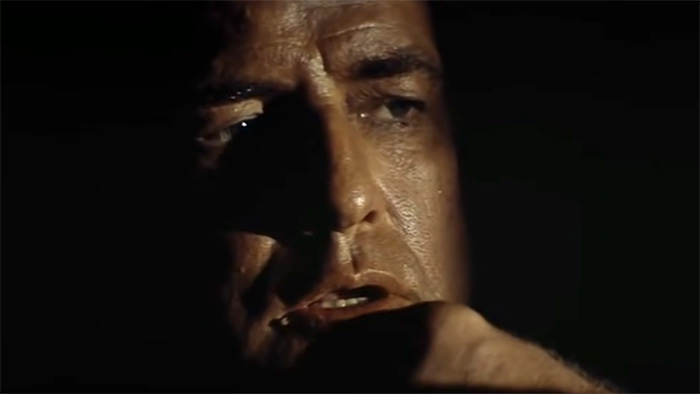
In the annals of cinematic history, few performances have been as enigmatic, as haunting, and as profoundly impactful as Marlon Brando’s portrayal of Colonel Walter E. Kurtz in Francis Ford Coppola’s 1979 masterpiece, “Apocalypse Now.” Brando’s performance, though limited in screen time, is a testament to the power of method acting and the indelible mark it can leave on an audience.
Brando’s entrance into the film is a masterstroke of suspense and anticipation. His character, the rogue and enigmatic Colonel Kurtz, is spoken of in hushed whispers and fearful tones, his reputation preceding him long before his physical introduction. When Brando finally graces the screen, his presence is palpable. He is a specter in the shadows, a ghostly figure that embodies the madness and horror of the Vietnam War.
Brando’s performance is a study in subtlety and nuance. His dialogue is delivered in a low, almost whisper-like tone, forcing the audience to lean in, to listen, to engage. Each word is carefully chosen, each sentence meticulously crafted. His monologues are not just speeches, they are poetic dissertations on the nature of war, morality, and the human condition.
Brando’s method acting approach to the role is evident in every scene he inhabits. He reportedly stayed in character even when the cameras were not rolling, fully immersing himself in the psyche of Kurtz. This dedication to his craft is evident in the authenticity of his performance. He does not just play Kurtz, he becomes Kurtz. He embodies the character’s disillusionment, his madness, his profound understanding of the horrors of war.
The physical transformation Brando underwent for the role is also noteworthy. His shaven head, his bloated physique, his weary eyes – all contribute to the portrayal of a man who has been consumed by the war. His physical appearance mirrors his mental state, adding another layer of depth to his performance.
One of the most memorable scenes in the film is Brando’s monologue about a Viet Cong atrocity. The scene, shot in extreme close-up, is a masterclass in acting. Brando’s delivery is chilling, his eyes reflecting the horror of his words. The monologue is a testament to Brando’s ability to captivate an audience, to draw them into his world, to make them feel his character’s pain and disillusionment.
Brando’s performance in “Apocalypse Now” is not just a portrayal of a character, it is a reflection of the human condition. It is a commentary on the madness of war, the moral ambiguity of conflict, and the profound impact it has on those who experience it. Brando’s Kurtz is not just a character, he is a symbol, a representation of the darkness that lies within us all.

Theodore Lee is the editor of Caveman Circus. He strives for self-improvement in all areas of his life, except his candy consumption, where he remains a champion gummy worm enthusiast. When not writing about mindfulness or living in integrity, you can find him hiding giant bags of sour patch kids under the bed.
